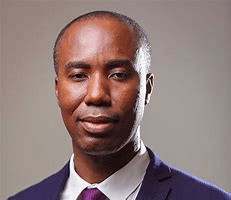Ghana, like many other developing nations, is grappling with a significant challenge in its healthcare sector – the mass exodus of its skilled nursing professionals. The country is facing a significant medical brain drain at a time when there is clear evidence that medical professionals possess some of the best skills in the continent and will play an important role in economic growth following the implementation of Agenda 111.
The President of the Ghana Registered Nurses and Midwives Association (GRNMA), Perpetual Ofori-Ampofo, has revealed that approximately 6,000 nurses have left Ghana searching for better opportunities since August 2023.
“Sadly, salaries and other conditions of service are not the best, and that is why many of our colleagues continue to emigrate from Ghana to other high-income earning countries, seeking greener pastures. The negative impact of this trend cannot be underestimated.”
Perpetual Ofori-Ampofo, President of the Ghana Registered Nurses and Midwives Association (GRNMA)
The relatively low wages earned by nurses in Ghana, coupled with the rising cost of living, make it difficult for them to meet their financial needs. The lure of higher remuneration abroad is a significant incentive for nursing professionals to migrate.
She emphasized that nurses and midwives in Ghana make valuable contributions to the healthcare system through their diverse involvement in clinical practice, education, research, public health, rehabilitation, administration, management, and other essential roles.
The challenging working conditions in Ghana’s healthcare system, including long working hours, inadequate resources, and limited access to modern medical technology, contribute to nurses seeking opportunities in countries with better infrastructure and working environments.
“When we had to send student trainees to rural areas, you would see first-hand the trouble people have to go through just to provide service or live in such areas, and it hasn’t changed over the years. It is still the same.”
Perpetual Ofori-Ampofo, President of the Ghana Registered Nurses and Midwives Association (GRNMA)
The loss of highly skilled nursing professionals exacerbates the problem of brain drain in Ghana. The country invests in training and education of these nurses, only to lose them to foreign nations. This depletion of skilled human resources hampers the development of the healthcare sector and broader economic growth.
Mrs Ofori-Ampofo further highlighted that the mass exodus of nurses puts immense pressure on Ghana’s healthcare system. With fewer nurses available to provide care, the quality of healthcare services is compromised, leading to longer waiting times, decreased patient satisfaction, and increased morbidity and mortality rates.
Addressing the Issue
Perpetual Ofori-Ampofo also took the opportunity to ask for help for the health sector, which needs more improvements in infrastructural development, than just drones for medical supplies.
“The health sector needs more improvement than just drones. We need to improve and ensure that the equipment we need and the medications we need together storage systems are always available. If they were there and you had storage to ensure that you keep those medications at the right temperatures or the blood at the right place, you wouldn’t need a drone to deliver it from somewhere else.”
Perpetual Ofori-Ampofo, President of the Ghana Registered Nurses and Midwives Association (GRNMA)
Investing in modern medical technology and infrastructure can improve the quality of care and make the profession more attractive to nurses.
Additionally, enhancing working conditions, including better remuneration, reduced workloads, and improved infrastructure, can help retain nursing professionals within the country.
“When you talk about the health system, it needs to be a more coordinated effort with all sectors. So, transport or road networks, housing, utilities. All those things, everything needs to work together for the good of the community in which Ghanaians are living.”
The government can foster collaborations with other countries to create mutually beneficial programs that address the nursing shortage. This can include exchange programs and capacity-building initiatives. Implementing coordinated data collection and immigration pathways can facilitate fair and equitable healthcare worker migration. This includes developing a pathway that recognizes the contributions of healthcare professionals who choose to work abroad and ensures their return to their home country.
The mass exodus of Ghanaian nurses poses significant challenges for the country’s healthcare system. The resulting strain on resources, brain drain, weakened primary healthcare and economic implications call for urgent action.
By improving working conditions, enhancing career opportunities, strengthening healthcare infrastructure, and fostering collaborations, Ghana can work towards retaining its nursing professionals and ensuring the provision of quality healthcare for its citizens.
READ ALSO: ECG Warned to Exempt Health Facilities from Load-shedding





















